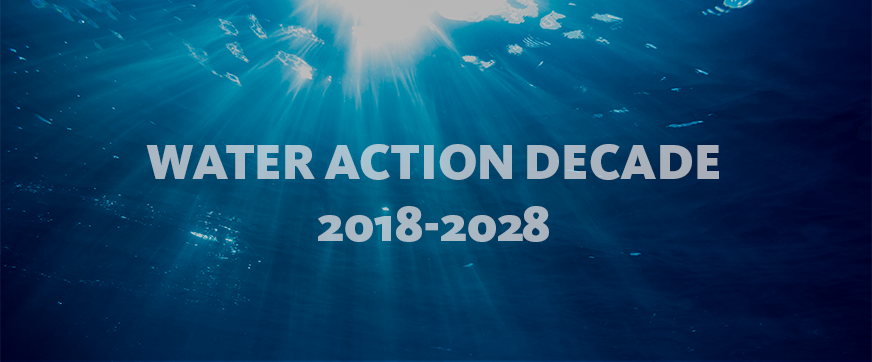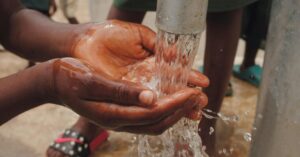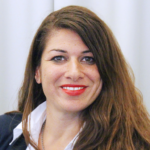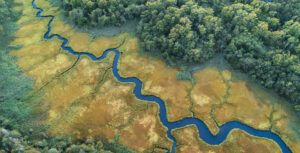- SIWI – Leading expert in water governance
- /
- Latest
- /
- Reaching the goals of the Decade for Water – Putting words into action!
Reaching the goals of the Decade for Water – Putting words into action!
How can we meet the objectives of the International Decade for Action on Water for Sustainable Development? This was discussed in Dushanbe, Tajikistan, in June at a High-Level International Conference on the International Decade. The close to 2 000 participants represented governments, civil society and international organizations.

The High-Level International Conference on the International Decade for Action “Water for Sustainable Development”, 2018-2028, met in Dushanbe, Tajikistan, on 20-21 June 2018. The purpose of the meeting was to discuss how to achieve the objectives of the Decade in order to support the implementation of the 2030 Agenda for Sustainable Development.
The conference provided a timely and necessary platform for elaborating recommendations for the delivery of SDG 6 in the run-up to the United Nations High-Level Political Forum on Sustainable Development (HLPF) in July. The conference built on the outcomes of the High-Level Panel on Water, the Water for Life Decade and other major water-related events and platforms at the global and regional level.
With close to 2 000 participants, representing more than 80 countries, including excellent representation from heads of state, Member State UN ambassadors and other high-level decision makers, as well as strong participation from civil society actors and partner UN agencies, the conference brought together the water community and bolstered political drive. Bilateral and multilateral organizations, regional commissions, academics, civil society organizations and the private sector also took part in the action panels of the conference that addressed the specific water targets laid out in SDG 6 and the other SDGs that were addressed at the HLPF 2018(Energy, Cities, Sustainable consumption and production and Land Ecosystems).
The pre-forums that took place the day before the conference highlighted the perspectives of youth, women, scientists and scholars, respectively, as well as the challenges the Central Asia region faces in the context of climate change. The recommendations of these pre-forums were shared at the opening session of the conference. Guest speakers invited to attend the action panels ensuring that these perspectives were mainstreamed throughout the conference.
The opening speeches of the conference, and the different official statements provided by decision makers, confirmed the vested interest and recognition that water must have on the political agenda to attain the overall 2030 Agenda for Sustainable Development and the Paris Climate Agreement. Heads of states, UN ambassadors, ministers and key regional commissions, in their official statements recalled that our global agendas cannot be reached if a sustainable and resilient approach to water management is not prioritized at all levels and in all sectors. It is an essential tool for cooperation and building partnerships (between stakeholders, sectors, basins, countries and regions) and water diplomacy is an essential entry point for ensuring peace and security at a local, national, regional and international level.
The participants of the conference also used the Dushanbe Declaration “Promoting Action and Policy Dialogue” as a means to ensure that the HLPF ministerial declaration is universal, equitable, transformative, holistic and integrated. The declaration was adopted unanimously at the conference and is available here.
SIWI took an active part in the conference as a member of the international steering committee, the drafting committee of the Dushanbe Declaration, and as a co-convenor, speaker and facilitator in eight sessions. See our complete list of events here and read about our Public Dialogue on the SDG 6 Synthesis Report here.
After the Dushanbe conference, the HLPF and the debates during the UN General Assembly’s 73rd session, we are now looking forward to the upcoming events at World Water Week 2018 to continue this dynamic movement that inscribes water at a high political level.
This process will continue until the next conference in two years, that will take place once again ahead of the HLPF in June. With a bi-annual rhythm, this creates an opportunity to take stock on the advancements of SDG 6 and other water-related targets as well as follow up on the actions and partnerships announced at the conference and adjust if gaps are identified or if we are off track. Sustainable water management is at the heart of our global agendas, if we are off track on any of the water-related targets, we will never reach the future we want.
Most recent

SIWI’s endorsement of the COP29 Declaration on Water for Climate Action
- Water and climate
- World Water Week
- Water governance

SIWI-WASH experts join IVL
- Water, Sanitation and Hygiene (WASH)
- Water governance

Women hold the key to building climate resilience

Transforming relations through WASH access




